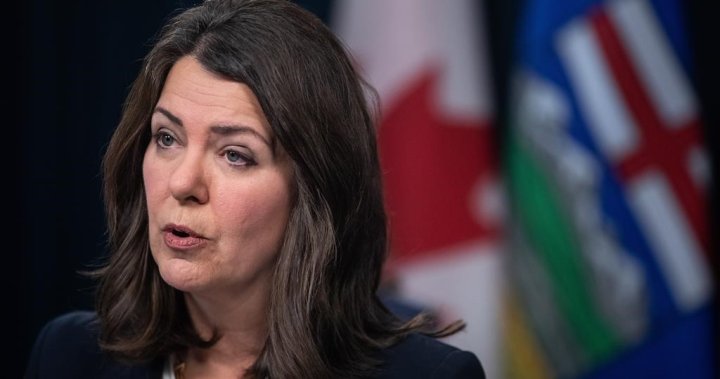In a recent interview, Alberta Premier Danielle Smith emphasized the need for a united front against U.S. President-elect Donald Trump’s economic threats towards Canada, particularly regarding proposed tariffs on Canadian imports. Smith expressed frustration with Prime Minister Justin Trudeau’s approach to energy policies, which she believes complicates negotiations with the U.S. She highlighted the importance of making Alberta’s oil and gas sector exempt from the 25 percent tariffs that Trump has threatened to impose, arguing that it is essential for Alberta to present itself as a solution to the U.S. energy security and affordability issues. Smith criticized Trudeau’s carbon pricing and oil pollution caps, asserting that these policies undermine Alberta’s potential to negotiate effectively in Washington.
Trump’s proposed tariffs are framed as a means to address concerns over immigration and drug trafficking, particularly regarding fentanyl. In her interview, Smith acknowledged these concerns but stated they reflect deeper issues within Trudeau’s policies, which have not aligned with the harder-line approaches favored by Trump and his allies. Smith indicated that Alberta has been adversely affected by the opioid crisis and issues related to immigration, both of which strain the province’s resources. She insisted that Trudeau needs to acknowledge the shortcomings in his policies that are now negatively impacting Canada-U.S. trade relations.
The federal government’s consultations on draft regulations aimed at reducing oil and gas pollution by 35 percent below 2019 levels have raised alarms in Alberta. Smith warned that implementing such a cap could jeopardize energy supply and result in substantial revenue and job losses for the province. As Canada’s top foreign energy supplier to the U.S. and a significant player in the global oil market, Alberta’s interests are paramount. Concerns among Fort McMurray residents about potential tariff-induced price hikes and job cuts highlight the tangible impacts such policies might have on the provincial economy and local employment.
Despite acknowledging the complexities of maintaining a unified stance, Smith noted that Alberta has long been active in lobbying its interests in Washington, receiving representation since 2005. She plans to attend Trump’s inauguration, emphasizing the importance of directly engaging with U.S. stakeholders while advocating for Alberta’s energy. Smith argued against the notion that direct engagement would detract from the collective strategy discussed in recent meetings between Canadian premiers and the federal government.
Going forward, Smith stressed the necessity of a comprehensive approach where Alberta’s energy is integrated into the discussions between the U.S. and Canada. She underscored the importance of acknowledging U.S. concerns while highlighting Alberta’s capacity to contribute positively to the relationship. This approach advocates for a cooperative dialogue where both parties can advance a trade relationship without resorting to tariffs or punitive measures.
Finally, Smith remains hopeful but recognizes the urgency of addressing these issues before Trump’s proposed tariffs take effect. She believes that the two-month lead time provided by Trump is an opportunity for Canada to collaboratively find solutions that could avert significant economic fallout. By calling for tighter border security and addressing concerns about illegal drug trade, she insists there is still a window of opportunity to negotiate terms that would alleviate tensions and protect Alberta’s critical energy sector. The stakes are high, and the need for unified and actionable strategies has never been more pressing as the new U.S. administration prepares to take office.

